Delhi-NCR’s air quality turns ‘very poor’, situation likely to worsen till…
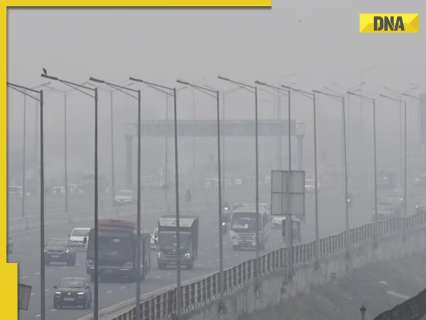
The Air Quality Index (AQI) in Delhi’s Anand Vihar has been recorded at 334, which is classified as ‘very poor’.
India adds Canada border police officer to terrorist list amid diplomatic row over Hardeep Nijjar killing
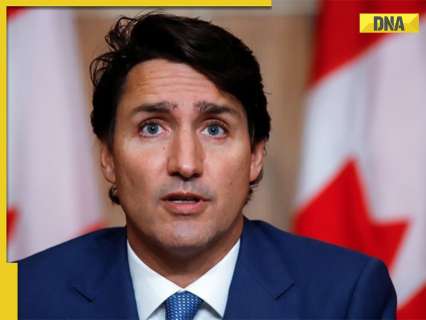
This comes after Canadian Prime Minister Justin Trudeau and the Royal Canadian Mounted Police (RCMP) alleged that Indian diplomats were sharing information about Sikh separatists with organised crime groups in India
Vistara’s Delhi-London flight diverted to Frankfurt after bomb threat

In a statement early Saturday morning, an airline spokesperson said the flight landed safely at the Frankfurt airport and mandatory checks are being conducted.
What is gerrymandering in US elections? What to know in 500 words
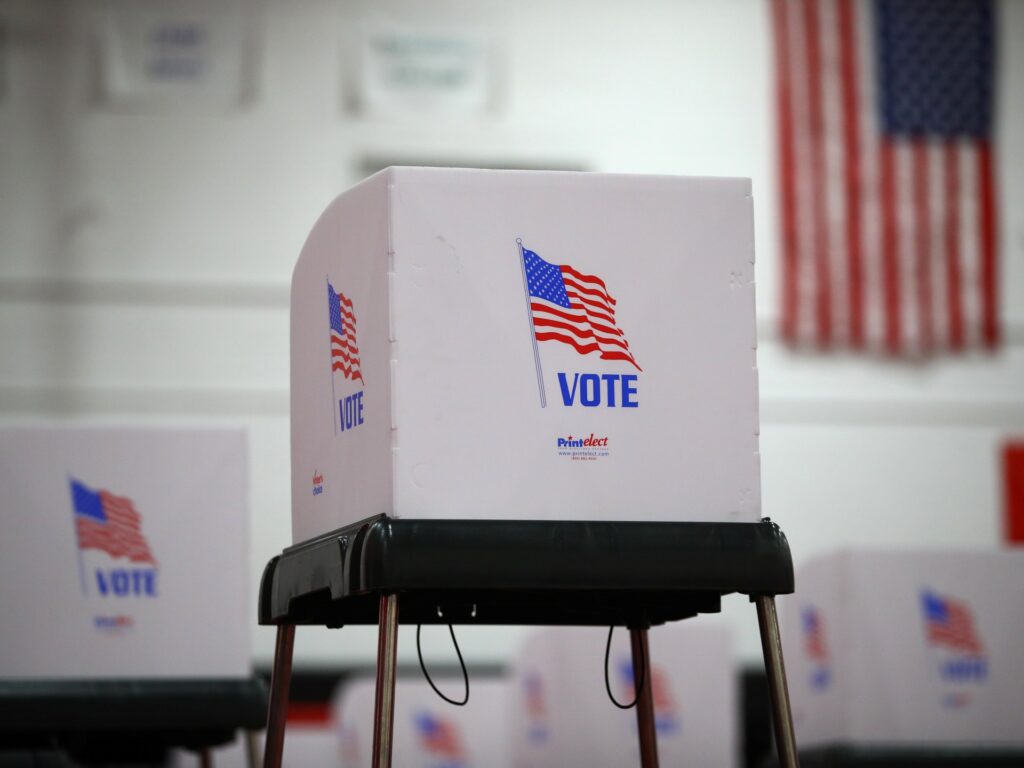
EXPLAINER Gerrymandering, the partisan redrawing of voting districts, is as old as the US and yet is still a controversial part of its elections. It’s been called vote-rigging, a power grab and just plain sneaky. But it’s legal, and both Republicans and Democrats do it. Gerrymandering, the process of redrawing voting districts to favour political parties, is almost as old as the United States and yet still very much part of the modern political process. In this year’s general election, it could affect the outcome of crucial races for the US House of Representatives as well as state legislatures. How does gerrymandering work? Generally, once a decade, states update their voting districts to reflect population changes. That’s where gerrymandering creeps into the process. Political parties try to redraw the electoral maps to give their side the greatest number of seats in state legislatures and Congress. The district boundaries are manipulated to put like-minded voters together or to split them apart, either amplifying or diluting their voting power. The results are often contorted districts with meandering boundaries drawn to include some voters and leave others out. Essentially, gerrymandering allows politicians to choose their voters instead of the other way around. The word was invented in 1812 when the governor of Massachusetts, Elbridge Gerry, redrew the electoral map for the state Senate to benefit his party. The result was an oddly shaped district that looked like a salamander. It inspired cartoonist Elkanah Tisdale to draw a mythical creature for the Boston Gazette, calling it the “Gerry-mander”. The name stuck. Forging complacent politicians? Gerrymandering is controversial — and not just because it’s a blatant grab for votes. Critics claim it can dilute the voting power of racial minorities and undermine democracy. A 2023 study by Harvard University researchers found that gerrymandering often creates “safe” seats for politicians, meaning their races are less competitive. In turn, those politicians become less responsive to the needs of their constituents, who become discouraged about voting as a result. At least eight states have clear language in their constitutions against the partisan redrawing of voting districts. Others use independent commissions to make the changes. But the majority of states lack safeguards. National efforts in the last Congress also failed to ban partisan gerrymandering. In 2019, the US Supreme Court ruled it’s up to state courts to deal with legal battles over voting maps. So now, it’s a state-by-state fight over the role of partisan politics in voting districts — with some recent rulings potentially affecting the outcome of the 2024 election. For example, in South Carolina, a new voting map has turned a swing district into a safer Republican one, causing outrage among voting rights advocates. In Louisiana and Alabama, meanwhile, newly drawn maps could mean at least one more House seat in each state for Democrats. And in North Carolina, the state supreme court ruled in favour of a gerrymandered congressional map, possibly giving Republicans three more House seats. Each of those races is significant: Control over the US House of Representatives is decided by district-level votes, with the fate of national legislation hanging in the balance. Adblock test (Why?)
Muslims join Buddhist, Christian fighters to topple Myanmar’s military
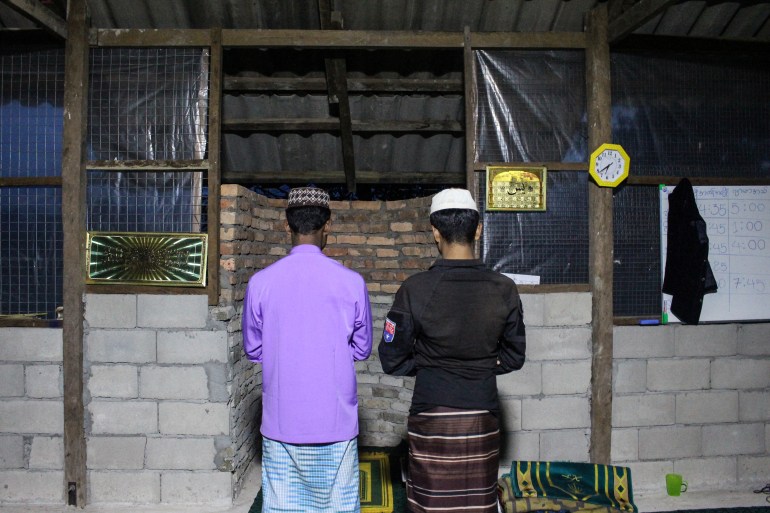
Myanmar – Scattered across the lush, rolling hills of southern Myanmar’s Tanintharyi region, rebel fighters stationed at checkpoints inspect cars and trucks traveling towards a nearby town still under the control of the Myanmar military – their adversary. While this is a familiar sight in the region, where the struggle against the military waged by disparate armed groups has intensified since the 2021 coup, what sets these rebels apart is their faith. These are members of the little-known “Muslim Company”, who have joined the struggle for democracy in Myanmar as part of a Christian- and Buddhist-dominated armed group – the Karen National Union (KNU). Officially named 3rd Company of Brigade 4 in the KNU, the 130 soldiers of the Muslim Company are just a fraction of the tens of thousands fighting to overthrow the country’s military rulers. With their story largely untold, Al Jazeera visited the company’s headquarters, nestled between the ridges of jungle-clad mountains at an undisclosed location in Myanmar’s south, to piece together an almost forgotten thread in the intricate tapestry of Myanmar’s conflict. “Some areas are focused on ethnicities having their own states,” Muslim Company leader Mohammed Eisher, 47, explained, referring to the armed resistance movements who have long fought against Myanmar’s military. In Tanintharyi, Eisher said, no one group dominates the land and, besides, the military’s repression affects all groups. “As long as the military remains in place, Muslims, and everybody else, will be oppressed,” he said. Fighters in 3rd Company pray at the mosque in their main camp in southern Myanmar [Lorcan Lovett/Al Jazeera] While Eisher said he hopes the acceptance of diversity within the anti-military forces would help ease cultural and regional tensions that have previously led to conflict in Myanmar, scholars say the embrace of the Muslim Company underlines the inclusive nature of the historic uprising taking place, and the incorporation of previously marginalised groups into the struggle. Diverse lines of descent Myanmar’s Muslims trace diverse lines of descent. They include the Rohingya in the west of the country, Muslims with Indian and Chinese heritage, and the Kamein, whose ancestors are believed to have been archers of a Mughal prince seeking refuge in the Arakan kingdom in the 17th century, and which is now part of Myanmar. In Tanintharyi, where the Muslim Company is based, some Muslims are descended from Arab, Persian and Indian traders, while others are Burmese Malays, known as Pashu. The region’s ethnic diversity also includes Karen and Mon, as well as Bamar sub-ethnicities from the cities of Dawei and Myeik, among others. While their uniforms bear the KNU insignia, the Muslim soldiers of 3rd Company carry a star and crescent moon badge in their bags, symbolizing their lineage from the All Burma Muslim Liberation Army (ABMLA) – the country was called “Burma” before it was re-named “Myanmar”. Soldiers in 3rd Company, known as ‘Muslim Company’, rest while recovering from illness at their barracks in Myanmar’s Tanintharyi region [Lorcan Lovett/Al Jazeera] In their main camp, hijab head coverings and thobes – long-sleeved ankle-length traditional robes often worn by men and women in Muslim countries – are common attire. Recitals of Quranic verses ring out from a mosque, while prayer mats are laid out at remote rebel outposts. Throughout the holy month of Ramadan, the company’s fighters observe fasting and attend daily prayers. Successive military-led governments in Myanmar, together with hardline nationalist monks, have portrayed Muslims as a grave threat to Burmese Buddhist culture. That has resulted in Muslim communities, with roots spanning more than a millennium in Myanmar, facing scapegoating, religious suppression and denial of citizenship. “It’s dangerous to generalize, but Muslims in Myanmar are highly vulnerable and have been exposed to significant violence,” Myanmar scholar Ashley South said. “In Karen areas, however, one often finds communities living peacefully – and it is significant that Muslim refugees moved tentatively to KNU-controlled areas, sometimes in preference to other groups,” South said. He added that the inclusion of groups previously alienated by Myanmar’s fractious politics is a defining trait of the current revolution, which has made strong gains against the military since it grabbed power in 2021. History of Muslim resistance The Muslims who resisted the military following its overthrow of Myanmar’s elected government three years ago and then found their way to 3rd Company, are not the first to rise against repression. Among those fleeing the anti-Muslim riots of August 1983 in what was then Moulmein – now called Mawlamyine – in lower Burma, a small group of refugees formed the Kawthoolei Muslim Liberation Front (KMLF) in KNU-held territory. The KNU trained about 200 KMLF fighters, but disputes between Sunni and Shia leaders eventually fragmented the group. In 1985, some KMLF fighters moved south to Tanintharyi, founding the ABMLA. After decades of sporadic clashes with the military, they officially became 3rd Company, known colloquially as the “Muslim Company”. That was about 2015, after the KNU’s ceasefire with the military ended, according to an administrator who has been with the group since 1987. With military atrocities having devastated families across Myanmar since the recent takeover, Myanmar’s army is now anathema not only to Muslims and ethnic minorities but to most of the population, the administrator said. “The [2021] coup opened a path to freedom for everybody,” he added, speaking to Al Jazeera as he sat on a hammock above a pair of military boots taken from a captured government base. About 20 women serve in 3rd Company, including 28-year-old Thandar*, a medic who joined in October 2021. After completing combat training under the KNU, Thandar told how she heard about the Muslim force and decided to sign up. Thandar has served in 3rd Company since October 2021 [Lorcan Lovett/Al Jazeera] “I’ll work here until the revolution is over,” she said, smiling at their commander, Eisher. “He’s like my new father now,” she said. Among other things, belonging to a like-minded company of fighters “made it easier to have a halal diet”, she said. “Plus, I’m with fellow Muslims,” she added. “It’s
Newspaper offices hit by gunfire in Mexico’s Sinaloa state capital
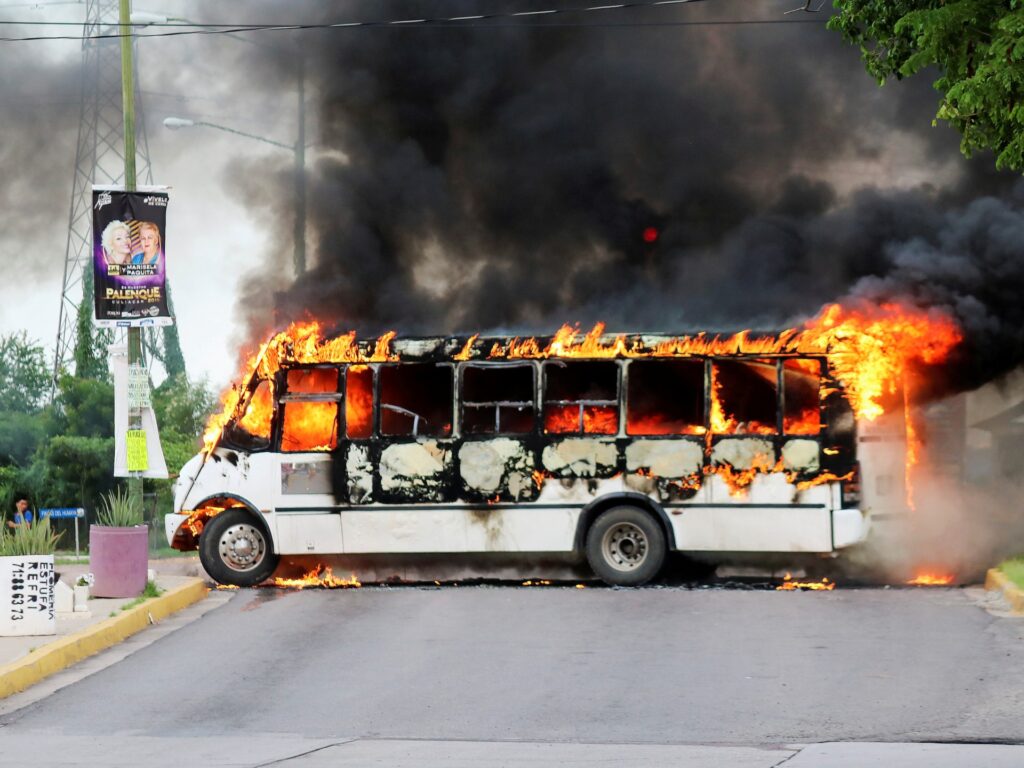
Gunmen shoot at office building of respected Mexican newspaper in Sinaloa capital Culiacan. Gunmen have fired on a building housing the respected Mexican media outlet El Debate as part of an ongoing drug cartel battle. The media building was sprayed with gunfire on Friday and several cars outside were also damaged. The paper said no one was injured in the attack. The El Debate newspaper is based in the state capital Culiacan, where there has been a surge in violent gun battles between rival gangs of the Sinaloa Cartel since September. The newspaper has been publishing stories about the gang attacks in the northwestern state. El Debate said the assailants arrived in two vehicles and stopped briefly in front of the building. One gunman got out and opened fire with a rifle before they sped off. Journalists threatened Threats against journalists and their sources have increased since the latest round of fighting broke out. Journalists have reported being stopped by gunmen on roadways outside Culiacan and told they could not cover the continuing gun battles happening on the outskirts. The Mexican Media Alliance, a press freedom group, calls this shooting “a direct attack against press freedom and right of the public to be informed”. Being a journalist in Mexico is dangerous business, according to Reporters Without Borders. The organisation has documented the death and disappearance of reporters in the country. In the last six years alone, 37 have been killed and five have disappeared. Mexican President Claudia Sheinbaum has said she “condemns” the attack against El Debate. Her government has sent military personnel with armoured vehicles and high-powered weapons to Sinaloa to protect the population, but the troops have struggled to quell the violence. Adblock test (Why?)
Poll finds majority of Americans say they’re worse off than four years ago, similar to 1992 election

With Election Day inching closer, a recent survey suggested that a majority of Americans believe they are worse off than they were four years ago. The Gallup poll, released Friday, found that 52 percent of Americans said they and their family are worse off today than they were four years ago. The Gallup poll was conducted Sept. 16-28 among 1,023 Americans and has a margin of error of 4 percentage points. Another 39 percent said they were better off, while 9 percent said they felt the same now as they did back then. Gallup noted that these results are most similar to their 1992 survey – when then-Gov. Bill Clinton defeated incumbent Republican President George H.W. Bush. FOX NEWS POLL: TRUMP AHEAD OF HARRIS BY 2 POINTS NATIONALLY The responses varied on the person’s party affiliation. About 72% of Democrats say they were better off in 2024 than 2020, according to the survey. The numbers were much lower for independents, 35%, and Republicans, just 7%. The polling powerhouse noted that participant’s response to whether they felt “better off” was typically tied to the U.S. economy. Gallup’s monthly Economic Confidence Index (ECI), which ranges from -100 to +100, was currently at -26, with 39 percent saying they were better off financially four years ago. TRIO OF NEW POLLS AGREE ON WHERE TRUMP AND HARRIS STAND WITH 3 WEEKS TO GO UNTIL ELECTION DAY The organization has been tracking ECI’s since 1992. Since the start, the highest ECI score was +56 in January 2000, and the lowest was -72 in October 2008. Gallup noted that former President Trump’s 2020 loss to now-President Biden was a “sign that noneconomic factors were paramount to voters that year.” Gallup noted that the ECI has largely been negative over the past four years. In 2022, the index registered several scores that were the worst since the 2007-2009 recession and inflation reached highs. During the past three years, Americans have named inflation as the most important financial problem facing their family. The survey’s findings suggest that inflation is an underlying fear of many Americans’ perception of the economy – despite the generally low unemployment and steady economic growth. Approximately 46 percent of Americans say their current economic conditions are “poor,” some 29 percent described them as “only fair,” while 25 percent said they were “good” or “excellent.” Additionally, 62 percent said the economy is “getting worse,” while 32% said in the survey that it is “getting better.” CRUNCH TIME: KAMALA HARRIS TO TEAM UP WITH THE OBAMAS NEXT WEEK The survey found key areas that were on the top of voter’s minds as they headed to the polls. A more recent Fox News poll, conducted Oct. 11-14, found that the economy continues to outrank all other issues, as 40% say it is the most important issue in deciding their choice for president. Less than half as many prioritize immigration and abortion, and far fewer cite issues such as election integrity, health care, climate change, guns, crime and foreign policy. Get the latest updates from the 2024 campaign trail, exclusive interviews and more at our Fox News Digital election hub. Fox News’ Victoria Balara and Dana Blanton contributed to this report.
After Roberson ruling, upcoming Court of Criminal Appeals election in the spotlight
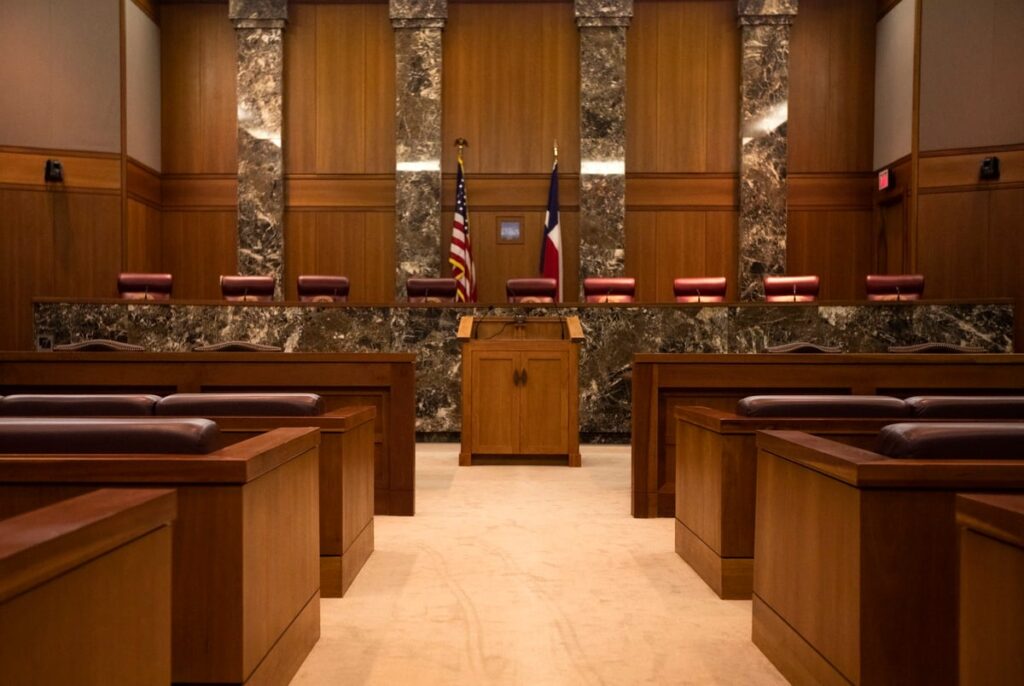
Three of the five judges who allowed Robert Roberson’s execution to proceed will be leaving the court after Paxton-backed primary challenges.
Home stretch: Harris, Trump hold dueling events, rallies in crucial battleground state
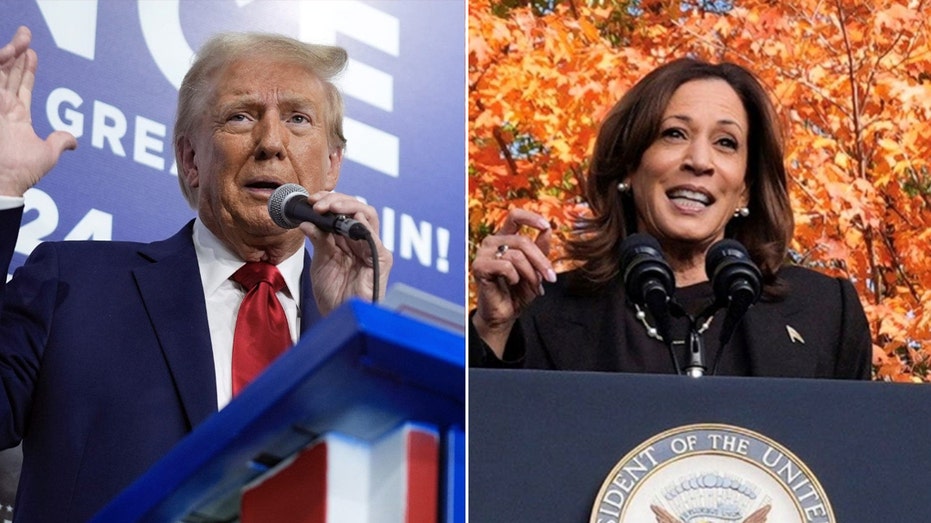
LANSING, Mich. — Vice President Kamala Harris is back in the crucial Great Lakes battleground state of Michigan. “It’s the time to make a plan to vote. Make a plan,” Harris urged supporters at a rally in Grand Rapids, the first of her three stops here Friday. “Michigan, today I ask you … are you ready to make your voices heard?” And she emphasized to the crowd that “we’ve got to energize and organize and mobilize and remind our neighbors and our friends that their vote is their voice.” However, the Democratic presidential nominee didn’t have Michigan to herself Friday, less than three weeks to go until Election Day. CRUNCH TIME: KAMALA HARRIS TO TEAM UP WITH THE OBAMAS NEXT WEEK Former President Trump, the Republican standard-bearer, is also in Michigan. Trump’s first stop was a campaign office in Hamtramck, the only Muslim-majority city in the U.S. Hamtramck Democratic Mayor Amer Ghalib, the first Arab American and first Muslim to lead the city, attended the event. Ghalib made headlines a month ago by endorsing Trump, even though three council members in the same city have endorsed Harris. WATCH DONALD TRUMP’S INTERVIEW ON ‘FOX AND FRIENDS’ “Frankly, it’s an honor,” Trump said of the mayor’s endorsement as he took questions from reporters upon arrival in Michigan. Trump and Harris are courting the state’s consequential Arab American voters, who make up over 2% of Michigan’s population, the highest percentage of any state in the nation. The Trump campaign this year has seen an opening among Arab Americans over their anger at the current administration’s support for Israel in its war with Hamas in Gaza. “I don’t think they’re going to be voting for her [Harris],” Trump argued. Pointing to the latest polls in the state, he said, “I hear we’re leading in Michigan.” CHECK OUT THE LATEST FOX NEWS POWER RANKINGS IN THE 2024 ELECTION Many of the latest public opinion surveys in the swing state indicate Trump has a slight edge over Harris in a margin-of-error race. Matt Grossman, a Michigan State University political science professor, spotlighted the state’s “unique dynamics” as he pointed to Harris’ perceived “weakness” with Arab American voters as well as the state’s sizable Black electorate. Michigan is one of seven crucial swing states whose razor-thin margins decided President Biden’s 2020 election victory over Trump. And all seven states are likely to determine if Harris or Trump wins November’s election to succeed Biden in the White House. Michigan, along with Pennsylvania and Wisconsin, are the three Rust Belt states that make up the Democrats’ so-called “Blue Wall.” The party reliably won all three states for a quarter-century before Trump narrowly captured them in the 2016 election to win the White House. Four years later, in 2020, Biden carried all three states by razor-thin margins to put them back in the Democrats’ column and defeated Trump. Harris, who in July replaced Biden atop the Democrats’ 2024 ticket, and Trump and their running mates have made numerous stops in the Blue Wall states this summer and autumn. On Friday evening, both Harris and Trump were scheduled to be campaigning in and around Detroit. The vice president was holding a rally in suburban Oakland County, while the former president was also in the county for a roundtable discussion in Auburn Hills before headlining a rally in downtown Detroit. CLICK HERE TO GET THE FOX NEWS APP With Michigan a must-win state for Harris, she is spending the night and holding a get-out-the-vote event on Saturday in Detroit with Lizzo, a popular singer and rapper who was born in the Motor City. Lizzo revealed this week that she had voted early for Harris. Get the latest updates from the 2024 campaign trail, exclusive interviews and more at our Fox News Digital election hub.
Harris mocks pro-life protesters ‘at the wrong rally’ hours before Catholic charity dinner snub
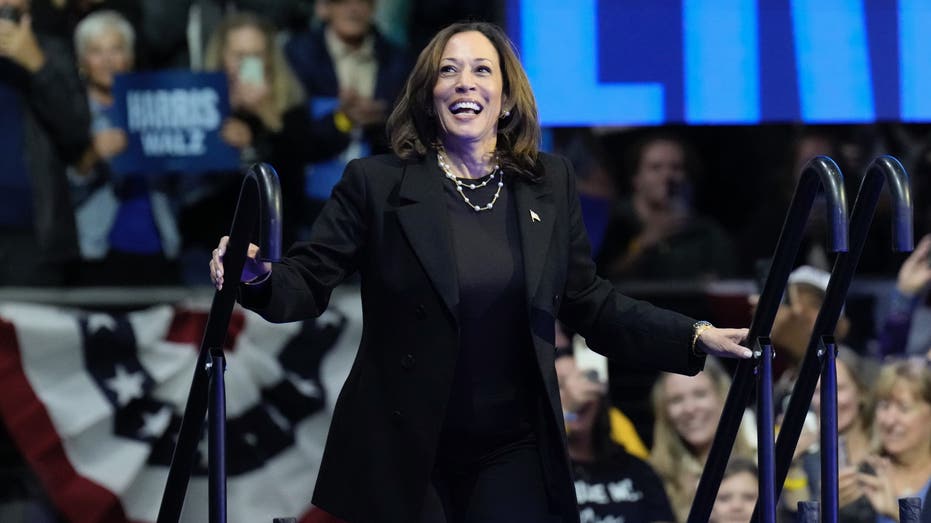
Vice President Kamala Harris didn’t hold back on pro-life protesters as she talked to her supporters about expanding abortion rights at her campaign stop in Wisconsin on Thursday, just hours before she skipped the Al Smith Catholic charity dinner. “We will move forward because ours is a fight for the future, and it is a fight for freedom — for freedom. Like the fundamental freedom of a woman to make decisions about her own body and not have her government tell her what to do,” Harris said to the crowd. “And again, we’re not going to be gaslighted on this. We remember Donald Trump hand-selected three members of the United States Supreme Court with the intention that they would undo the protections of Roe v. Wade, and they did as he intended,” she added. VP HARRIS RIPPED BY VICTIM OF ILLEGAL IMMIGRANT RELEASED UNDER HER PROGRAM OVER RESURFACED SPEECH Harris was then interrupted by anti-abortion protesters and said, “Oh, you guys are at the wrong rally,” as she flashed a grin. “I think you meant to go to the smaller one down the street,” she added — referring to former President Trump’s — as rallygoers erupted in cheers. On social media, users speculated Harris was responding to a particular attendee who shouted, “Jesus is Lord.” Fox News Digital has reached out to the Harris campaign for comment. The rally came as Harris skipped the 79th Alfred E. Smith Memorial Foundation Dinner in New York City. The dinner was launched in 1946 and has raised millions of dollars for charities supporting women and children. It has since grown to become a political and cultural hallmark of election seasons, but Harris surprised many by skipping the bipartisan political event that typically adds a bit of levity to the campaign trail each presidential election cycle. Harris was the first major-party presidential contender since Walter Mondale in 1984 to skip the event. Fox News Digital’s Brian Flood and Emma Colton contributed to this report.
